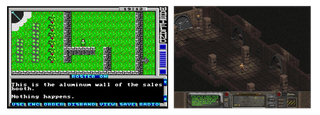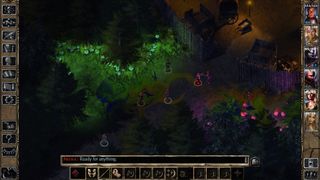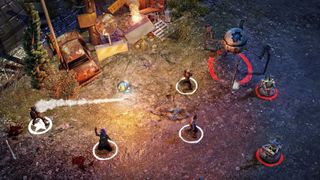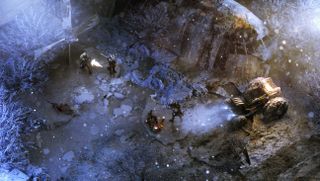Microsoft just bought inXile Entertainment, but who are they?
Microsoft is gearing up to tackle the next console generation with a bang, picking up studios left, right, and center in attempts to offset some of its biggest criticisms. Say hi to inXile Entertainment.

Microsoft is setting its bets for the next console generation, as Redmond not only attempts to make up for lost ground against PlayStation, but sets up defences against potential moves from Google, Amazon, and other tech giants.
Microsoft is well placed on a technical level for the next console generation. The combined forces of the Xbox and Surface industrial engineering teams is a winning combo, and Microsoft's massive investment in regional data centers grants them a sizable advantage in live services, and their planned game streaming service, set to debut in 2019. One area Microsoft has arguably neglected in recent years is in its internal game stable. Both critics and customers have been fairly adamant that Microsoft can improve in this area, and Microsoft has responded in a big way.
Microsoft picked up several new studios this year, including Forza Horizon-aficionado Playground Games, RPG heavyweight Obsidian Entertainment, and State of Decay developer Undead Labs. When Microsoft announced the acquisition of inXile Entertainment, however, it came as a bit of a surprise.
inXile Entertainment, founded by the legendary Brian Fargo of Interplay fame, is known in recent times for classic-style crowd-funded RPGs Wasteland 2 and The Bard's Tale IV. Both games were well-received overall, but they launched missing some of the polish that you might have expected from a larger studio. I think it's fair to say the games also flew under the radar a bit, lacking the marketing reach Microsoft Studios games typically enjoy. As part of Microsoft, inXile should be able to push their ambitions to the next level, handing off business administration and marketing efforts to Microsoft corporate, and focusing entirely on their art.
Here's a brief history of inXile, and what to expect from this hugely promising studio.
Interplay and the early days

Understanding the journey of inXile Entertainment, is at least in part, understanding the early days of game development and publishing from the 80s through to the 90s. Years before EA would truly explode into the massive corporate giant they are today, the little-known publisher was working with Brian Fargo's company, Interplay Productions, on a post-apocalyptic RPG known as Wasteland, which would go on to inspire and popularize the Fallout franchise. Wasteland was built for the Apple II and the Commodore 64, but can now be found on most systems, purchasable via GOG.com if you fancy a trip into history.
Both Wasteland and Fallout were big success stories in their heyday, and helped Interplay balloon to several hundred employees, publishing all sorts of titles. Both BioWare and Obsidian Entertainment share heritage with inXile through Interplay's Black Isle division, spawning legendary RPGs like Baldur's Gate, Planescape: Torment, and Icewind Dale.
Get the Windows Central Newsletter
All the latest news, reviews, and guides for Windows and Xbox diehards.

Despite plenty of successes, the struggle to fully capitalize on the console market and increasing competition led Interplay towards bankruptcy. To avoid this, the company went public in the late 90s to raise capital, and was largely successful. Interplay found some hefty investment from European publisher Titus Software, but a collection of unpopular decisions not only led to Black Isle Studios being shut down (which led to the creation of Obsidian Entertainment), but also to Brian Fargo and several other key staff leaving Interplay. Titus eventually went bankrupt in its own right, leaving Interplay largely on life support. Notably, it was during this period Interplay sold the rights to the Fallout franchise to Bethesda.
Alongside Interplay veteran Matthew Findley, Fargo went on to found inXile Entertainment, "in exile" being a nod to the high-profile fall out at Interplay and Titus.
Classic RPGs rejuvenated

inXile turned to Kickstarter to fund its game projects, free of investor money and influence. The studio re-acquired the rights to Wasteland after EA, and later Konami, let their respective ownerships of the trademark expire. Wasteland 2 was, at the time, one of the most funded Kickstarter projects, followed by successful campaigns for Torment: Tides of Numenera and The Bard's Tale IV.
We reviewed both Wasteland 2 and Torment: Tides of Numenera. inXile's dedication to classic RPG sensibilities really shines through in all of their recent titles, as studios increasingly forsake branching narratives, choice and consequence, and depth for transitory experiences that focus on spectacle. One thing typifies both games, however, and that is poor polish, and technology that feels as though it could fall to pieces at any moment. They are rough experiences by modern standards, which betrays the creativity and attention to narrative detail CRPGs are known for.
inXile announced Wasteland 3, which, from its trailer, looked like a far more technically ambitious project than Wasteland 3, with more detailed environments, improved animations, and modernized character work. Fargo also announced that he would be retiring following Wasteland 3's release. Until Microsoft stepped in, that is.
The future

Microsoft revealed its acquisition of inXile at its X018 event, adding yet another studio to its growing first party lineup. Fans of inXile and its focus on classic RPGs voiced concerns that the studio could get swallowed up in the corporate beast that is Microsoft, citing the closure of Lionhead, Ensemble Studios, and other game divisions at Redmond that struggled to thrive within the company. Fargo detailed his position on the acquisition in a compelling interview with Eurogamer, which outlines some of the business realities so-called "AA" studios like inXile often struggle with.
Either the public is going to shut you down by not buying your product or, theoretically, the company that buys you is going to shut you down if you don't do good products. But now I have more tools at my disposal to prevent that from happening than ever before. The deck is more stacked in our favour than it ever has been.
inXile is a studio with around 70 employees as of writing, and despite that, they managed to create large, sprawling RPGs in Wasteland 2, Torment: Tides of Numenera, and The Bard's Tale IV.

Speaking to Eurogamer, Fargo noted that Microsoft has been pretty clear that they have no intentions to dictate the types of games inXile can make, nor will it block the appearance of The Bard's Tale IV or Wasteland 3 on PlayStation 4. Under Microsoft, some of the business-administration aspects of running a self-publishing game developer move entirely to Redmond. No more having to search for funding, no more having to market their own games. In-house testing and optimization, with the resources to grow and really improve on the polish and quality that held Wasteland 2 and some of inXile's other titles back. Fargo also noted that what the industry considers "AA" has become more expensive over time, and might have forced inXile to look for alternative sources of funding, including taking work contracts from other publishers.
I would just add, as an ending, I can honestly say I have a renewed sense of enthusiasm I haven't had for a long time. I am super-excited about this. […] In some ways we've had one hand tied behind our back, and now, no longer.
Fargo has also cancelled his plans for retirement, owing to the team up with Microsoft. In addition to Wasteland 3, inXile is working on another unannounced title, with plans to grow by around 30 per cent to accommodate its pursuit of improved polish and tuning.
inXile really typifies the feisty middle-ground studio filled with creative vision and talent, held back by the increasingly competitive gaming landscape. Under Microsoft, hopefully, inXile will reach new heights.

Jez Corden is a Managing Editor at Windows Central, focusing primarily on all things Xbox and gaming. Jez is known for breaking exclusive news and analysis as relates to the Microsoft ecosystem while being powered by tea. Follow on Twitter @JezCorden and listen to his XB2 Podcast, all about, you guessed it, Xbox!
